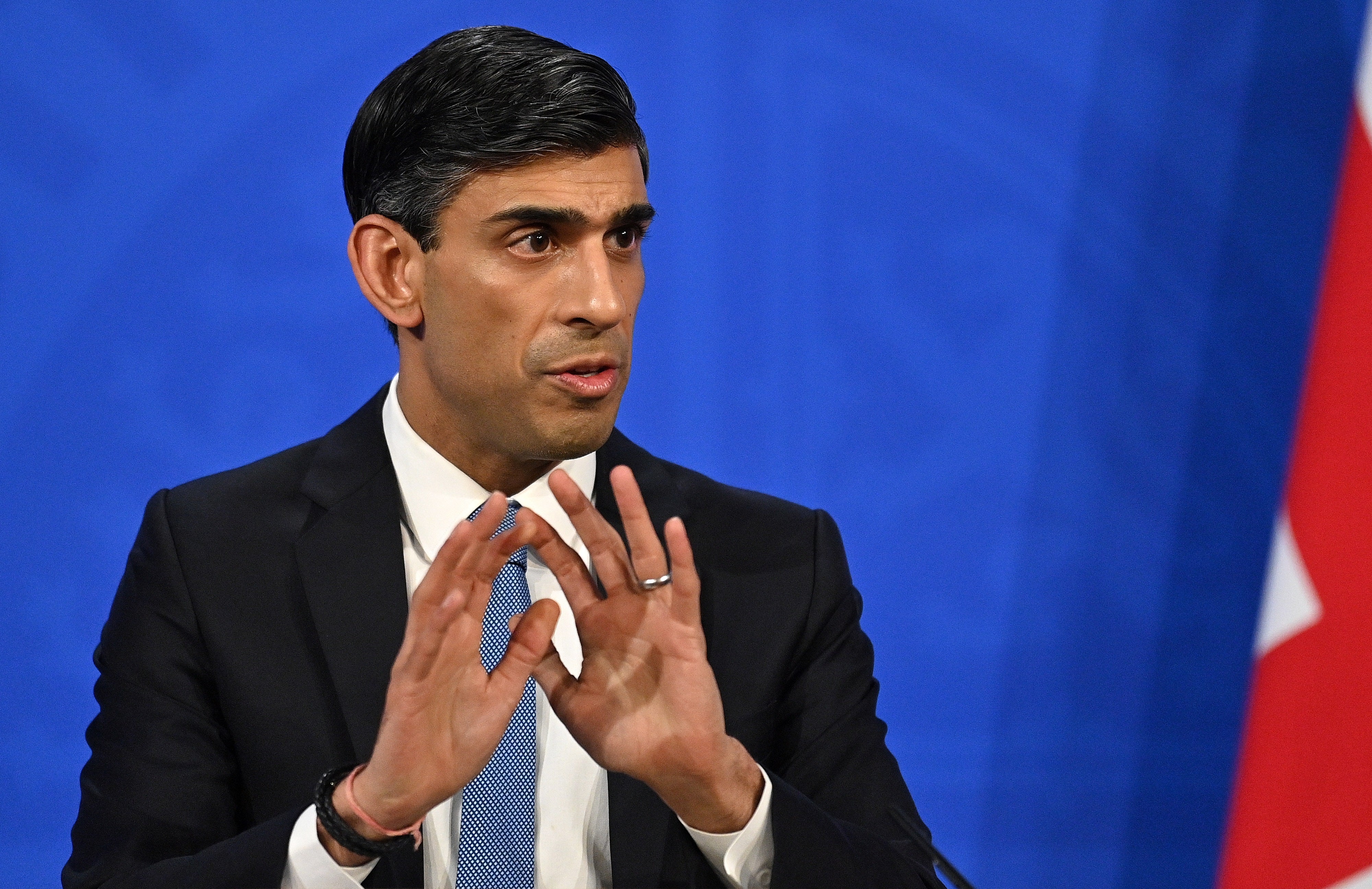When is a discount not a discount? When it comes from Rishi Sunak
Letters to the editor: our readers share their views. Please send your letters to letters@independent.co.uk

When is a discount not a discount? When it comes from Rishi Sunak. Touted as a “discount” on energy costs, Sunak’s plan is nothing of the sort. It is a £200 loan that must be repaid.
A discount is a reduction in the price of something. If I’m a retailer and I reduce the price of something by £200, I don’t later go back to the customer saying: “Remember that product I sold you? You still owe me £200 on it.” If I offered a “discount” in this way, I’d soon have Trading Standards and Consumer Affairs knocking at my door.
It would be much fairer to restore the £20 uplift for those receiving universal credit, which includes many folks in work. It is a great pity that Westminster was so fast and loose with taxpayers’ money, gifting billions – not millions – throughout the pandemic to corporations, businesses, and even individuals, for PPE that was either useless or not supplied.
Mike Sands
Norwich
Sunak is no financial whizz
Despite the chancellor being credited as some kind of financial whizz kid, his priority seems to be unshackling the City, while on the matter of public spending, this government seems to be the most financially inept ever seen. And worse than that, there is the stink of cronyism and corruption at the highest levels.
We are missing billions of pounds from Track and Trace and PPE purchasing, for example. Then there’s overpriced energy, the wildly inflating HS2 budget, wasted money on the National Citizen Service and even the £100,000 cost of Big Ben’s temporary bongs.
It’s astonishing how quickly these stories come and go, while the amounts are astronomical. And they are reported in the Conservative Party’s favourite tense: the passive. How many times have we heard that “money was wasted”, “losses were incurred” and “mistakes were made”? This money does not spend itself. Someone makes decisions, awards contracts and someone receives the benefits.
The media should shine a brighter light on these processes, their failings, those responsible and those standing to gain: individuals and companies. Name more names so they might be brought to justice (if only in the court of public opinion) for these things. They are not trivia, but national scandals.
Iain Boyd
Bristol
The real problem with Partygate
Why is it that no one has pointed out the real problem with the No 10 parties? They posed a real risk of spreading Covid throughout the heart of government, leaving the UK with no functioning leadership at a time of great crisis. Those attending the parties should hang their heads in shame and pay whatever fixed penalty notices are handed to them.
More importantly, those who failed to stop the parties, despite knowing the reasons for the rules, should be held to account for putting the whole country at an even greater risk.
Richard Grimmer
Trowbridge, Wiltshire
A windfall tax for oil and gas companies
The obscene greed of oil and gas companies charging ludicrous amounts needs reining in. The excuse that it is the mythical “market” pushing the phenomenal rise in prices doesn’t wash. They are set by people, who have minds and the ability to choose, even if not – it seems – consciences. The companies are not charities and need to make a fair profit, but they must still be fair and not exploitative.
If purchasers do not feel able to set a realistic limit on what they are willing to pay, then governments need to act with windfall taxes on the companies until balance is restored. This would require global cooperation as the companies tend to be multinational, using every loophole different jurisdictions have to dodge paying tax whenever possible. They would also need to ensure that the proceeds are actually distributed to the consumers.
Mike Margetts
Kilsby
New Zealand’s Covid measures
Molly Codyre wrote on behalf of fellow New Zealanders who have been unable to return home because of our government’s Covid restrictions.
To keep up to speed with all the latest opinions and comment, sign up to our free weekly Voices Dispatches newsletter by clicking here
In one way, I sympathise with her approach. I think about the unimaginable plight of New Zealanders stuck in another country without jobs, accommodation or money. In another way, I rebut her claim that it shows the New Zealand government and prime minister lack empathy.
Jacinda Ardern showed tremendous empathy when our Christchurch Muslim community was attacked by a lone gunman about two years ago; I am sure she anguished over those who would be isolated overseas as a result of the steps taken to keep Covid out of our land.
It wasn’t only New Zealanders who were isolated overseas. We Aucklanders became isolated. Our borders in New Zealand were closed to the rest of the country because we contained the main bulk of Covid cases. For many months, we could not see family members in other parts of the country when the restrictions came in overnight. We could not be with family members who were dying, or attend their funerals. Weddings had to be cancelled, including the prime minister’s.
Molly, I am sure your life does matter to our government. Like all the other governments around the world, it has done its best to cope better than governments did with the 1918 flu epidemic. We will welcome you with open arms. We feel great sympathy for you and all the others trying to return.
Angela Caughey
Auckland, New Zealand






Join our commenting forum
Join thought-provoking conversations, follow other Independent readers and see their replies
Comments